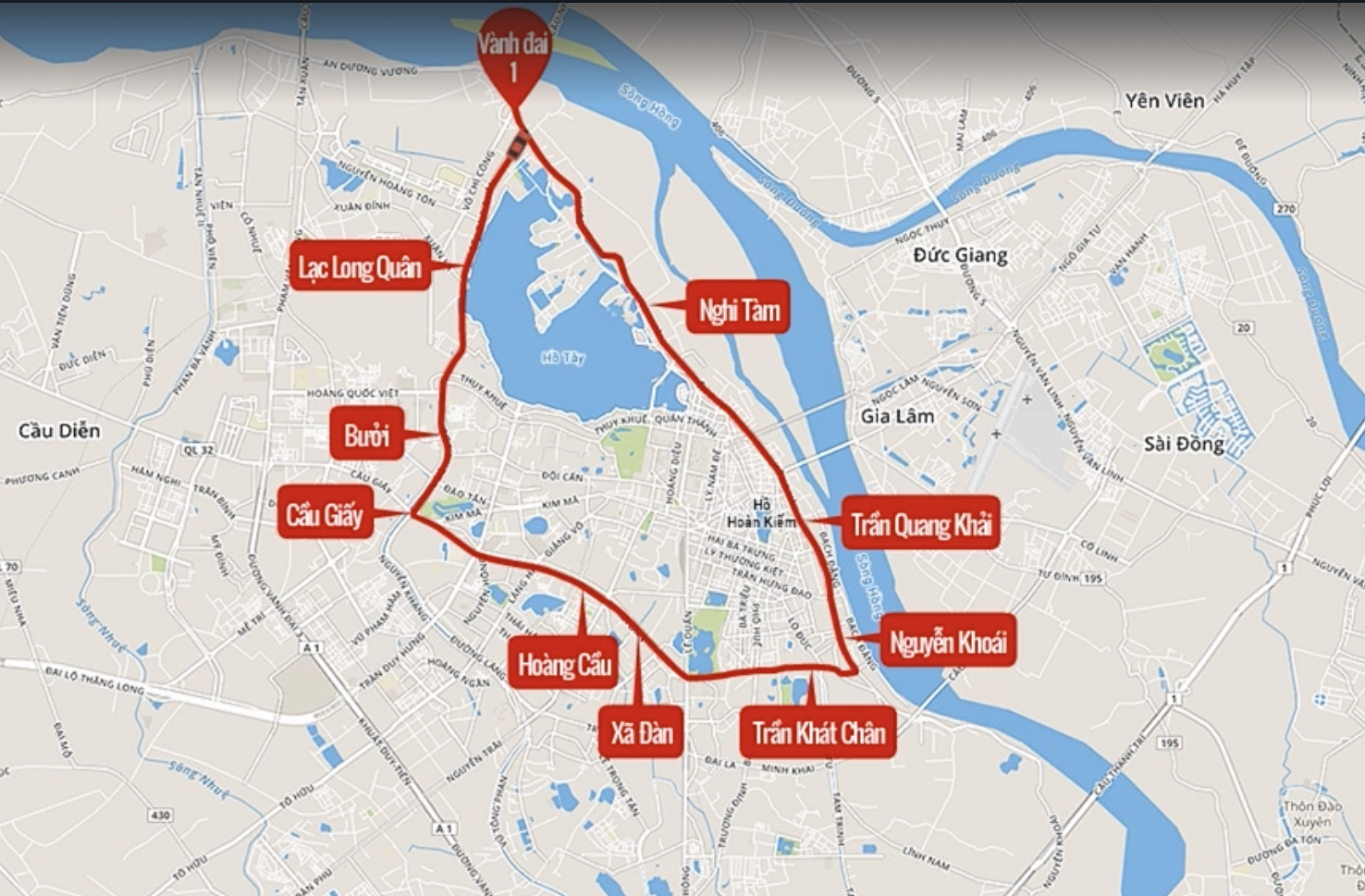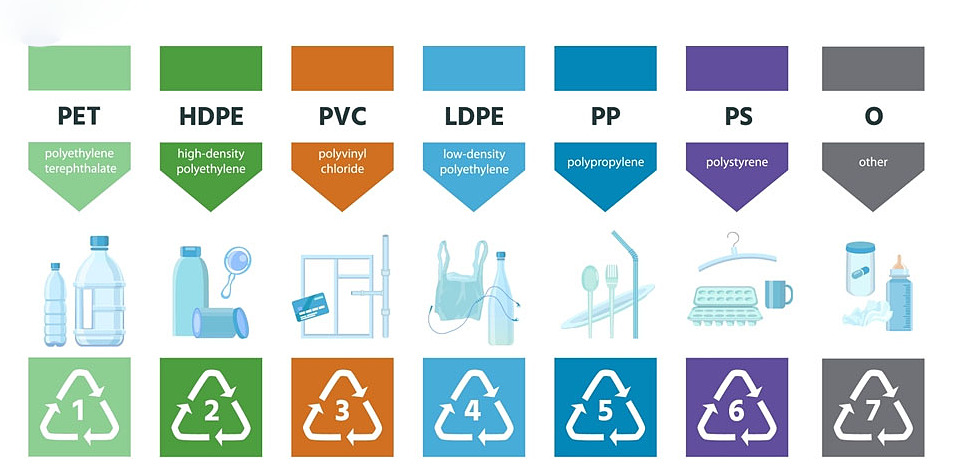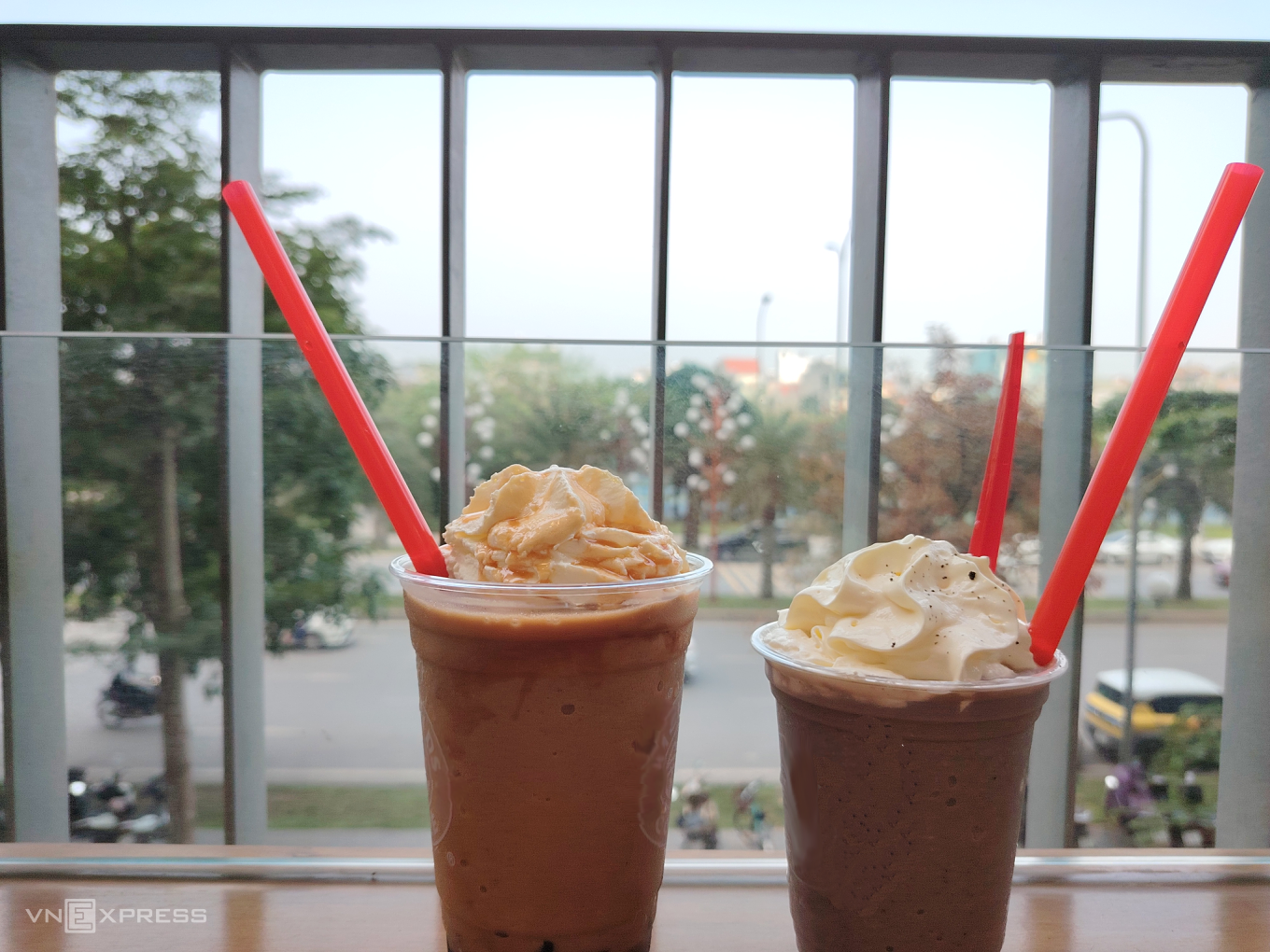In Directive 20, issued on 12/7, regarding urgent tasks to combat and resolve environmental pollution, the Prime Minister mandated Hanoi to pilot a ban on single-use plastics in restaurants, hotels, beverage shops, and eateries within Ring Road 1. The pilot program will commence in Quarter IV of this year and expand in subsequent years.
 |
Hanoi’s Ring Road 1. Graphics: Tien Thanh |
This is the latest regulation concerning plastic pollution reduction in Hanoi. The city is determined to reduce plastic waste, currently exceeding 1,400 tons per day.
Two days prior, the Hanoi People's Council (HPC) also passed a resolution outlining measures to reduce plastic waste in production, business, services, and daily life. The following outlines the specific timeline for each sector.
| Time | Applicable to | Banned products/activities |
| 1/1/2026 | Hotels, tourist areas | Single-use plastic products including toothbrushes, razors, cotton swabs, shower caps, small packages of toothpaste, shower gel, and shampoo |
| 1/1/2027 | Markets, convenience stores | Free plastic bags |
| 1/1/2028 | Government agencies | Single-use plastics and non-biodegradable plastic packaging including plastic bags, styrofoam food containers |
| 1/1/2031 | Citywide | Import and export of single-use plastic products, non-biodegradable plastic packaging, and products containing microplastics |
According to Decree 08 of 2022, single-use plastic products include trays, food containers, bowls, cups, straws, and other plastic items designed for single use. Non-biodegradable plastic packaging is made from PE, PP, PS, PVC, PET, and typically takes a long time to decompose in soil, water, or landfills.
Plastic products are often categorized by resin identification codes, from 1 to 7, each with distinct properties and recycling methods. These codes are usually printed on the bottom of plastic products.
 |
Plastic classification table by resin identification code. Graphics supported by AI. |
PET (Polyethylene Terephthalate) - 1: Commonly used in water and beverage bottles. Recycling method: Melting and molding. PET can be recycled multiple times to produce products like t-shirts, blankets, and carpets.
HDPE (High-Density Polyethylene) - 2: Milk jugs, oil bottles, and household products. Recycling method: Melting and molding, mechanical recycling. Recycled HDPE is often used to make containers, boxes, household items, or plastic crates.
PVC (Polyvinyl Chloride) - 3: Soft plastic used in products like pipes and phone cases. Recycling method: Mechanical recycling (rare) and chemical decomposition. However, PVC recycling is complex and less common due to the difficulty in processing additives.
LDPE (Low-Density Polyethylene) - 4: Plastic bags and food wraps. Recyclable but less common.
PP (Polypropylene) - 5: Food containers and plastic trays. Easily recycled into products like containers and bottle caps.
PS (Polystyrene) - 6: Plastic cups and styrofoam containers. Very difficult to recycle and prone to causing pollution.
Other (Miscellaneous) - 7: Mixed plastics. Usually not recyclable or difficult to process.
 |
A cafe in Tay Mo, Hanoi, on 29/4. Photo: Bao Bao |
Many provinces and cities are also aiming to reduce plastic waste. Tourist areas have been pioneering these efforts. Cu Lao Cham Islands (Da Nang) and Co To (Quang Ninh) banned tourists from bringing plastic bags in 2019 and 2022, respectively. Six years ago, Ha Long Bay (Quang Ninh) also banned tourists from using single-use plastic products like cups, straws, and plastic bags. In May, a tourist boat was suspended for 7 days for allowing passengers to use single-use plastics.
Ho Chi Minh City (HCMC) also aims to restrict the use of plastic bags and single-use plastics in Thanh An commune and tourist destinations in Can Gio by 2030.
A pilot program to reduce plastic use was implemented in a Da Nang market three years ago. At Han Market, many vendors use paper bags and collect clean plastic bags for reuse.
Nationwide, according to Decree 08/2022, single-use plastic products and non-biodegradable plastic packaging (including non-biodegradable plastic bags and styrofoam food containers) will be banned in shopping malls, supermarkets, hotels, and tourist areas after 2025.
From 1/1/2026, Vietnam will reduce the production and import of small, non-biodegradable plastic bags. After 2030, the government aims to completely halt the production and import of single-use plastic items, non-biodegradable plastic bags, and styrofoam food containers.
Bao Bao












